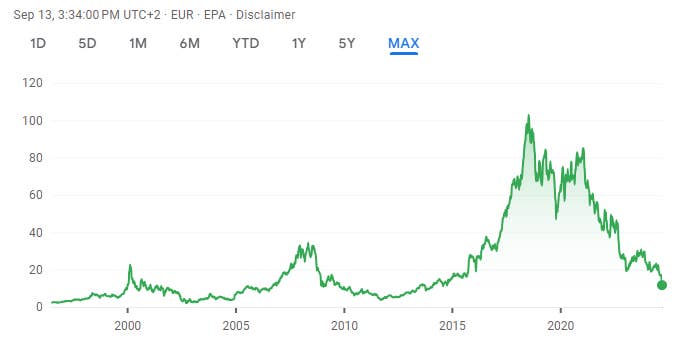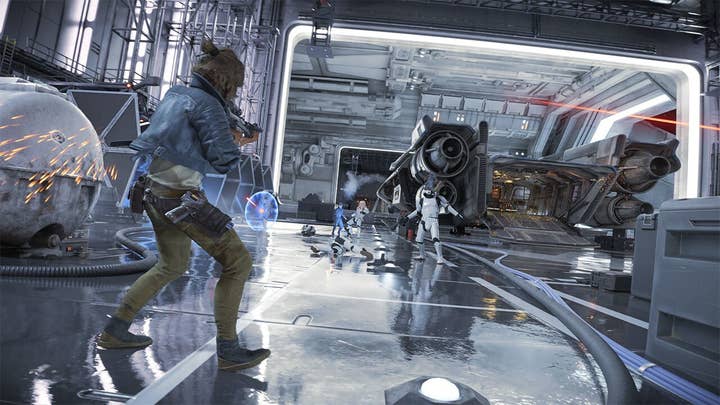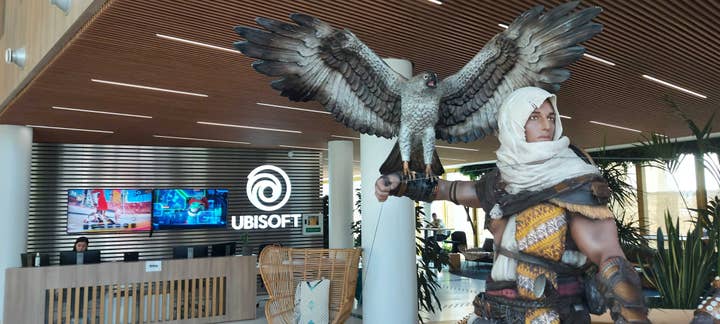What Challenges Is Ubisoft Facing? | Analysis
Ubisoft's journey since its public offering nearly three decades ago has been marked by various takeover clashes that have shaped its corporate narrative. Originally, the company was a key European distributor of other firms’ games, but soon it made strategic moves to evolve into a significant publisher and developer, drawing the attention of larger corporations eyeing potential acquisitions.
In 2004, Electronic Arts (EA) acquired nearly a fifth of Ubisoft's shares, hinting at a possible hostile takeover, though by 2010, EA had sold its stake. Subsequently, Ubisoft found itself in another, more intense struggle when the Guillemot family engaged in a multi-year standoff to prevent Vivendi, a media conglomerate, from taking control.
This period of corporate conflict had lasting impacts on Ubisoft's market performance, as evidenced by a review of its share price, which has seen significant devaluation, losing half its market worth over the last year alone. The pandemic initially buoyed valuations but this was short-lived, with shares plunging particularly sharply following the lackluster reception of their recent Star Wars: Outlaws release.

The high valuations in the years before 2020 can be largely attributed to the conflict with Vivendi. The Guillemots strategically increased their shares and voting rights, while Vivendi aggressively bought shares to hit a 30% threshold, escalating the share price drastically. Eventually, Vivendi retreated, selling shares to Tencent, having not achieved its takeover ambitions.
This left Ubisoft with an inflated share price, steered not by true corporate value, but by the outcomes of these boardroom battles, all but ensuring challenging times ahead as the shares readjusted to realistic levels.
Ubisoft remains an incredibly important part of the games landscape, and everyone working in the industry, especially in Europe, would benefit from it being in a healthier and better-managed state
Ubisoft's performance post-2020 has been discouraging. Its current valuation mirrors that of 2015 when Vivendi's interest first emerged, suggesting a lack of substantive progress in the eyes of the market. Investors have seen little to no returns, with some facing nearly a 90% loss in value. Amidst these market challenges, games like Assassin’s Creed: Shadows and others failed to meet expectations, further burdening investor confidence.
Recently, a minor investor suggested Ubisoft consider going private, a familiar scenario for the company. Although this call comes from a small shareholder with minimal influence, it echoes past takeover threats and diverts attention from addressing the deeper strategic and management issues within Ubisoft.
The open letter from the investor lacks depth, failing to provide a sound strategic analysis. It misrepresents Ubisoft’s intellectual properties and simplifies their business model issues, reading more like sensationalist rhetoric than substantial critique.

The suggestion to sell to private equity overlooks the adverse long-term effects such moves often entail — widespread job losses and asset liquidations don't equal better management. Despite its struggles, Ubisoft holds a noteworthy position in the gaming world, recognized for successful franchises that could bolster its standings if better managed.
Ubisoft's key challenge lies at its core; it lacks a blockbuster title that continually drives sales akin to Activision's Call of Duty or EA's sports line-up. Efforts to fill this void, such as XDefiant and Skull & Bones, have not paid off, underscoring a disconnect in strategic and editorial decisions.

Ubisoft’s significant headcount and ambitious development slate haven’t led to equivalent revenue outputs, signaling inefficiencies at higher management levels. With all decisions ultimately falling to Yves Guillemot, who has adeptly steered Ubisoft through various corporate turmoil, questions about his current capacity to drive the firm forward arise.
After leadership and cultural issues came to light in 2020, a revamp took place, yet Guillemot stayed. Getting Ubisoft back on track might necessitate fresh vision at the helm to align the company’s projects with robust strategic foresight. Yves Guillemot, despite his longstanding dedication, must affirm his ability to navigate these complexities and lead effectively into the future.
Ubisoft's share price had been inflated beyond reason by years of corporate battling
